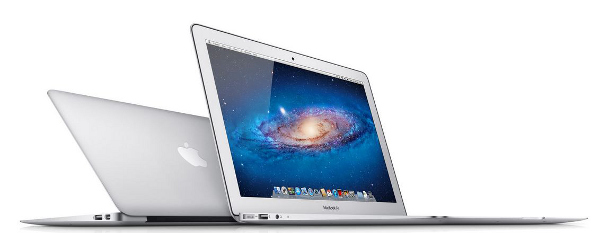The things you must know about Apple becoming 'less green'

This week, the Green Electronics Council announced that Apple will no longer submit any of its products to EPEAT, the Electronic Product Environmental Assessment Tool, for environmental rating, removing all of its products from the standardized green ratings system used by all US federal agencies.
Naturally, the subject of Apple rejecting compliance with anyone would generate a lot of discussion. However, there are some major pieces of information that get lost in the shuffle of news and the rush toward instant partisanship and polarization to sell a story. Below, we'll look at some of the basics of the story without dipping too far into the horribly overplayed "Apple vs. The World" trope that populates the Web.
What is EPEAT anyway?
The Green Electronics Council was formed in 2006, and EPEAT is its main program so far. It is a system that lets consumers compare and select the most environmentally friendly computers, notebooks, and monitors based on 51 different criteria that measure various qualities of energy efficiency and sustainability. Products are given a gold, silver, or bronze rating depending upon how they meet the various criteria.
In 2007, EPEAT got a major boost when Executive Order 13423, required 95 percent of electronic products purchased by the Federal government to be registered with EPEAT. Further, government agencies were ordered to "strive to purchase to EPEAT Silver rated electronic products or higher if available." This order was signed into law in 2009.
What are the EPEAT Criteria?
Computers and monitors are judged by the IEEE 1680 standard, and includes the categories: reduction/elimination of environmentally sensitive materials, materials selection, design for end of life, product longevity/life cycle extension, energy conservation, end of life management, corporate performance, and packaging. Standards are also being developed for imaging devices such as printers and copiers, television monitors, servers, and mobile devices such as smartphones and tablets.
Last March, four IEEE study groups introduced changes to the 1680.1 draft standard, which will change some issues to the EPEAT standard in the not too distant future.
What's Changing, and how does this apply to Apple?
Teardown experts iFixit recently declared the Retina Display-packing Macbook Pro was "The least repairable laptop we've taken apart," and Apple's svelte designs are leaving progressively less room for end user manipulation and customization.
Section 4.3.1.3 of the revised standard mandates "Easy disassembly of external enclosure." The criterion is pretty simple, "external enclosures shall be easily removable by one person alone with commonly available tools."
Apple uses proprietary "Pentalobe" screws to hold together the new iPhone and Macbooks, which immediately throws up a roadblock in compliance.
Furthermore, the non-removable batteries in Apple products present a compatibility problem with the new standard. Section 4.3.1.5 of the revised standard says circuit boards, batteries, and other components containing hazardous materials must be made safely and easily identifiable and removable, and the Lithium Polymer batteries of the new Macbooks are actually glued into the chassis. Once the case is opened, the fundamental structure is changed unless glue is re-introduced.
Does this mean Apple is no longer a "green" company?
Some of the other changes to the IEEE standard, including mandatory Energy Star compliance, and sound corporate and manufacturing environmental policy, are still met by Apple. Insofar as the company was green before, it's the same company now. Its engineering just does not meet the modularity and recycling standards of the IEEE.
What's more, the EPEAT standards for smartphones and tablets will not exist until the IEEE imaging, television, and server categories are completed first. Sadly, early documentation from the IEEE shows that these were intended to be introduced four years ago, and they are still a long way from completion.
How will this impact the public sector's use of Apple products?
Upon hearing that Apple no longer supported EPEAT, Jon Walton, Chief Information Officer for the city of San Francisco said all fifty of the city's agencies will no longer use taxpayer money to buy Apple products.
But apart from this kneejerk reaction, Apple products aren't going to be barred outright. EPEAT is a sort of "soft" requirement. That is to say, it is a law, but it does not apply to the whole federal government, and state-level general services commissions each have their own regulations to observe.
For example, my home state of Maryland requires all desktops, laptops, and computer monitors purchased or leased by state agencies to be rated as EPEAT silver or gold.
However, exceptions can be submitted by an agency's CIO to the Department of Information Technology for a case-by-case analysis. They simply must include a "clear justification of why the non-EPEAT registered product is required as opposed to similar products that are registered as EPEAT Gold or Silver."
Cases where agency-necessary software is OS X exclusive, for example, would be clear exceptions.
In five years, Apple has become a mobile powerhouse, propelling the BYOD (bring-your-own-device) movement in enterprise and business IT. The most common tools used in the workplace, therefore, are increasingly being done on the end user's personal gear with no procurement standards dictating how environmentally friendly it needs to be.
So, in short, if users absolutely must have Apple software, they might still be able to get Macs via exception, and if they want their iPhone or iPad at work, there is little to stop them from doing that, too.
In these cases, the onus for environmental responsibility falls on the user.
Credit: Gts/Shutterstock